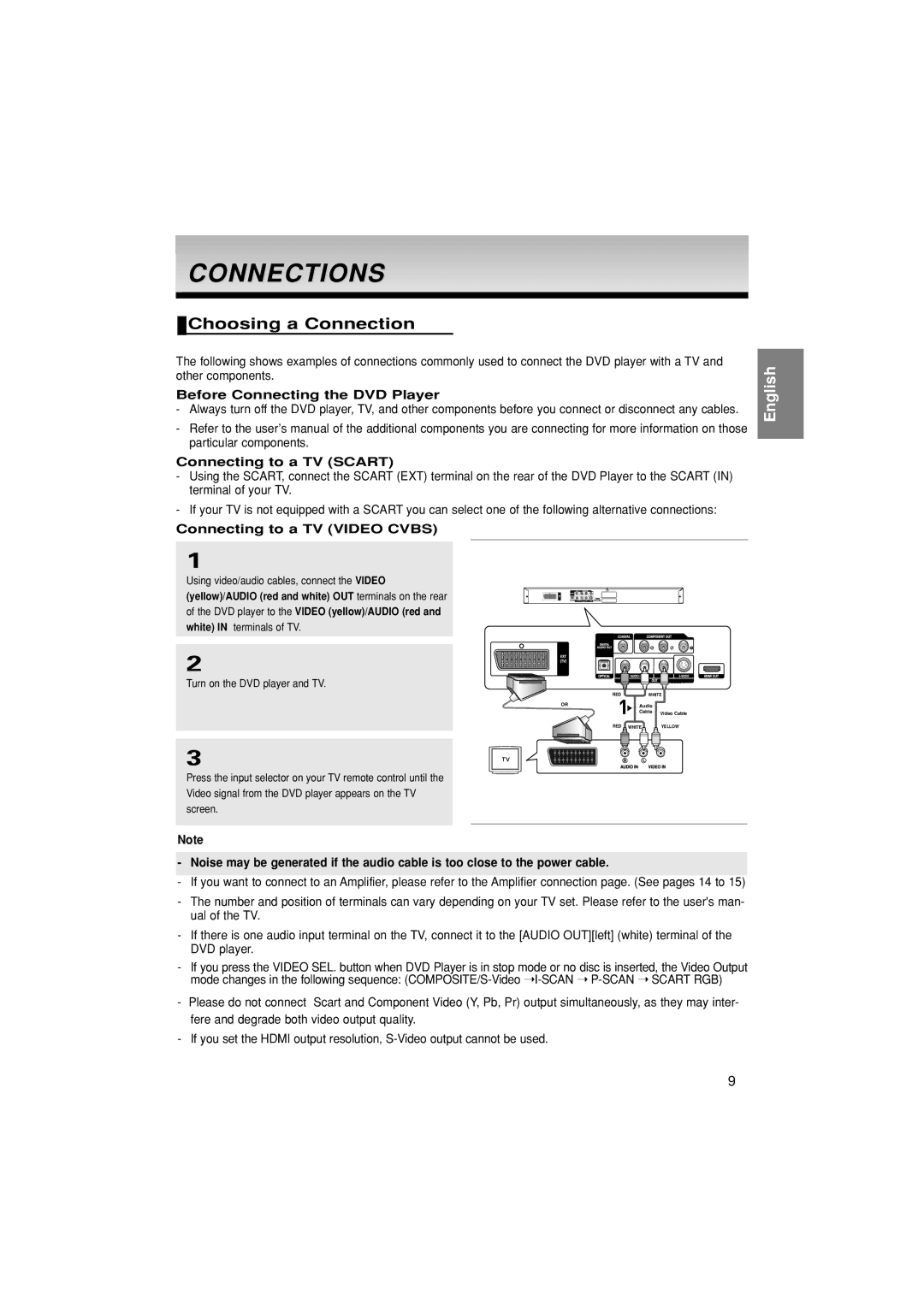
CONNECTIONS
 Choosing a Connection
Choosing a Connection
The following shows examples of connections commonly used to connect the DVD player with a TV and other components.
Before Connecting the DVD Player
-Always turn off the DVD player, TV, and other components before you connect or disconnect any cables.
-Refer to the user’s manual of the additional components you are connecting for more information on those particular components.
Connecting to a TV (SCART)
-Using the SCART, connect the SCART (EXT) terminal on the rear of the DVD Player to the SCART (IN) terminal of your TV.
-If your TV is not equipped with a SCART you can select one of the following alternative connections:
Connecting to a TV (VIDEO CVBS)
1
Using video/audio cables, connect the VIDEO
(yellow)/AUDIO (red and white) OUT terminals on the rear of the DVD player to the VIDEO (yellow)/AUDIO (red and white) IN terminals of TV.
2 |
|
|
Turn on the DVD player and TV. |
| YELLOW |
RED | WHITE | |
OR | Audio |
|
| Cable | Video Cable |
|
| |
RED | WHITE | YELLOW |
3
Press the input selector on your TV remote control until the Video signal from the DVD player appears on the TV screen.
Note
-Noise may be generated if the audio cable is too close to the power cable.
-If you want to connect to an Amplifier, please refer to the Amplifier connection page. (See pages 14 to 15)
-The number and position of terminals can vary depending on your TV set. Please refer to the user's man- ual of the TV.
-If there is one audio input terminal on the TV, connect it to the [AUDIO OUT][left] (white) terminal of the DVD player.
-If you press the VIDEO SEL. button when DVD Player is in stop mode or no disc is inserted, the Video Output mode changes in the following sequence:
-Please do not connect Scart and Component Video (Y, Pb, Pr) output simultaneously, as they may inter- fere and degrade both video output quality.
-If you set the HDMI output resolution,
English
9
